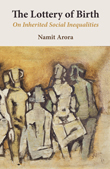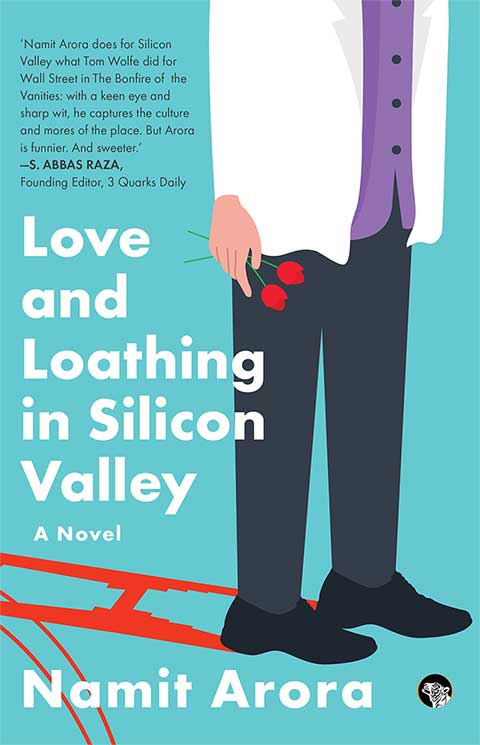| Index of articles from the Blog |
| Animals |
| Anthropology & Archaeology |
| Art & Cinema |
| Biography |
| Books & Authors |
| Culture |
| Economics |
| Environment |
| Fiction & Poetry |
| History |
| Humor |
| Justice |
| Philosophy |
| Photography |
| Politics |
| Religion |
| Science |
| Travel |
Books by
Books by
|
By Namit Arora | Jan 2011 | Comments
|
(An excerpt from a longer work of fiction.)
‘But ideals of female beauty have always existed in every culture,’ Ved argued. ‘Yes, but ours have become horribly unhealthy and unrealistic. I saw this even in my teens some twenty years ago, when I was in fact quite skinny.’ ‘Aren’t ideals usually unrealistic? I mean consider the buxom beauties of Indian temple art,’ he chuckled. ‘I’ve never met an Indian woman who came even close.’ ‘My point is that ideals don’t have to be unrealistic. Can we not have realistic ideals?’ ‘Perhaps in theory. But in real life there is always some power that tries to promote unrealistic ideals—to contain us, classify us, gain from us. In our culture, such power is exercised through marketing. Fortunately, women here also have the power to free themselves from the narrow ideals of beauty impressed on them.’ ‘I know that sounds very logical to you,’ she retorted. ‘But it’s easier said than done. You don’t know the pressure this culture puts on women, how it ruins their self-esteem, causes them anxiety and self-loathing—not to mention eating disorders and health problems. Do you know that some college sororities even have puking contests after dinner? You don’t know. You are not constantly evaluated by the shape of your tits and butt, are you?’ ‘No, but that may be because I don’t have tits,’ he tried to inject some humor. ‘What pains me more,’ she ignored his comment, ‘is the knowledge that so many women don’t see the big picture. Some even become co-conspirators with men in their own oppression.’ ‘Co-conspirators? Wait a minute. Are you saying that American men conspire to oppress women?’ ‘What I mean is that it is still a man’s world, customized to serve his interests, desires, lusts. Most men embrace this subconsciously. What’s worse is that most women accept and even further this status quo. They don’t even realize, let alone champion, their own interests.’ ‘Well, what solution do you propose?’ he asked. ‘Oppressors are also victims in this case. Men, too, have pressures—the same culture also lays down unrealistic ideals of success for them, which include being rich and famous, and scoring with skinny women. It may not be as physical but the demands on men are no less damaging to their souls.’ When it comes to gender issues,’ her voice turned sarcastic, ‘it sure must be convenient for men to conflate oppressors and victims.’ ‘I think you’re wrong,’ he said testily. ‘Women are not a single group. They have a great many identities and interests, a lot of which coincide more with other men’s than with other women’s. Oppressor and victim are fluid and amorphous terms. One must always look at particulars to pronounce judgment.’ ‘Maybe so, but the narrow assessment of women in this culture is just plain insidious. And one way or another, it all goes back to men.’ Her mind is made, he thought. Did she even hear his argument? ‘Listen, if your imagined sisters don’t use their heads, why feel sorry for them? If not this, then something else will find a way to control them, and even men. Such is the nature of power in human societies.’ ‘Yes, and it is worth resisting such power. That is why we need to educate women, to help them see how they are manipulated and controlled, how they are being held down. That they deserve better in their relationships. I do feel sorry for them!’ ‘But not all relationships are bad,’ he pointed out. ‘How do you figure out the relationships where women deserve better?’ ‘Wherever they do not share power equally with men.’ ‘But does it matter if the women are resentful or not? I mean, I’m unsure about the merits of provoking all unequal power relationships, particularly those rooted in tradition or mutual convenience, and which may seem more objectionable to outsiders than to the woman involved.’ ‘Would you have used this argument for slavery as well, that not all slaves seem to mind?’ An old trick in rhetoric: resort to extreme comparisons, with Hitler, slavery, genocide. ‘That’s an absurd comparison, Liz. Women don’t live under oppressive institutions in America. About their angst and insecurities in this day and age, all I can say is: stop blaming others! Get over it!’ ‘These are no ordinary insecurities, Ved. You won’t understand because you are a man. You are not subject to the same depressing messages constantly from age six. Behold, you girls! This is the ideal, desirable female body! This is what men want! And you know what? Once we internalize it, we can’t just give it up one fine day.’ ‘Look, I can’t help it that I am a man, but I think—’ ‘If only you would try to understand women! Instead, you speak from your high perch to us lesser mortals, breaking the news about our weakness to the world—hey, look here, how even these modern, educated women keep themselves in chains!’ ‘Listen, your making this so personal helps no one. See how wretched it makes you feel? Why let what you did not create, or what you cannot wish away, cause you such heartburn? Why let it consume you? You owe it to yourself to remain functional, to even cultivate a measure of comic detachment, in a world that is, and will always be, partly unjust.’ ‘I know that!’ she screamed. ‘I don’t let it consume me for God’s sake. It happens! OK?’ She stormed out of the room, leaving him to stare blanky at a small globe on her desk. He mentally replayed everything he had said, searching for something to apologize for. But all he regretted was getting into this conversation in the first place. He felt guilty too. Easy for him to say what he did. How well does he really understand the experience of women? He needs to work on that, doesn’t he? And, deep down, how broad is his own ideal of female beauty? In her place, wouldn’t he feel threatened too? He went looking for her and found her on the sunny balcony. Moving closer, he put his arm around her. She resisted at first, and then relaxed against him. Later, trying to enter her mind to see the world from within, he thought: each of us inhabits a world somewhat different from all others. We harbor all manner of models and theories, but without inhabiting the skin of others, can we truly understand their experience of life, in all its dimensions? Not quite, but trying is the best we can do, even though it may not lead us closer to the Truth. Trying is all we have. More writing by Namit Arora? |
Designed in collaboration with Vitalect, Inc. All rights reserved. |
|








